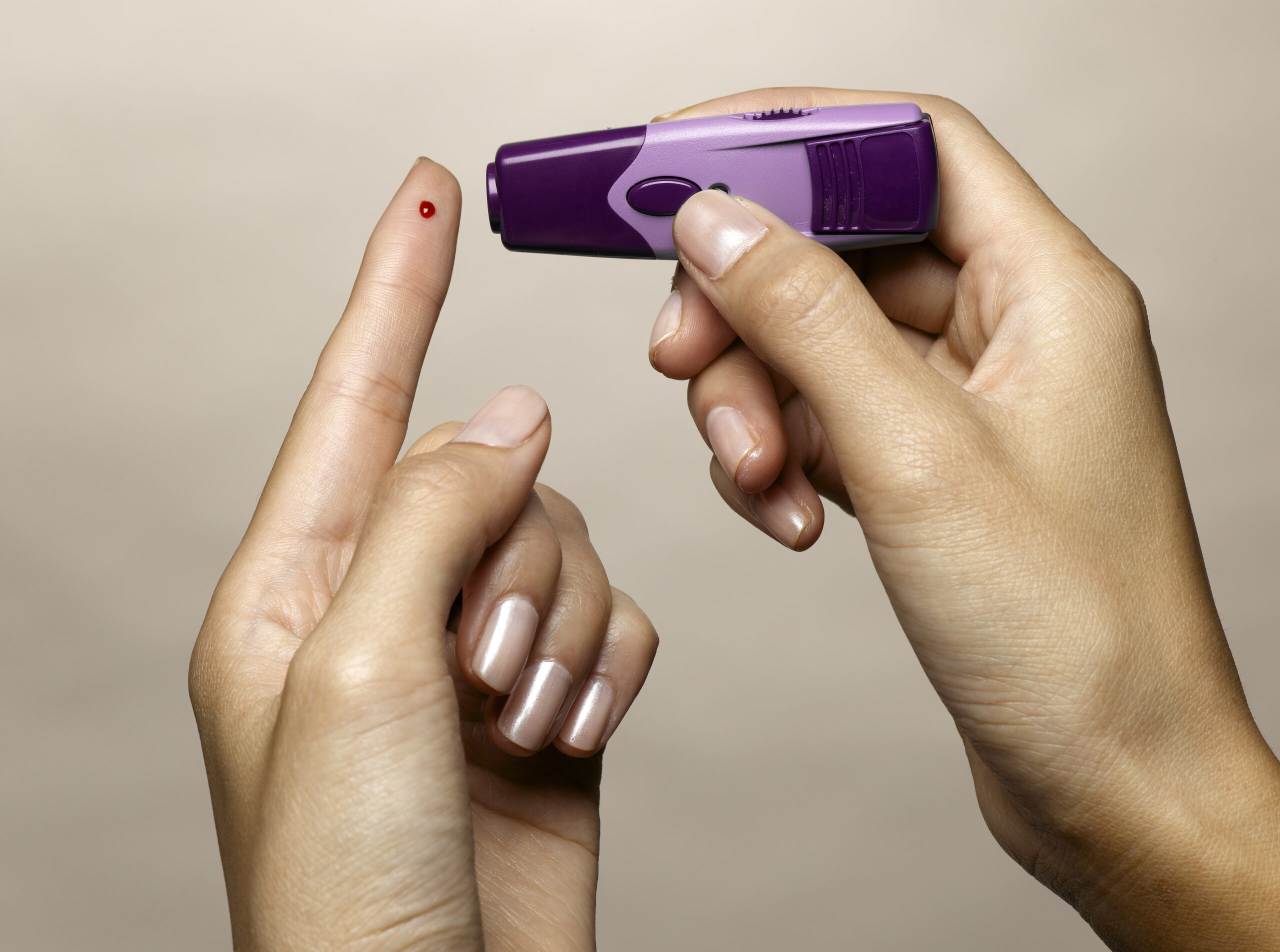By Sandra Byer-Lubin, R.D., C.D.E.
Managing diabetes and controlling blood sugar when you’re sick can be more difficult than it is at other times. You may not be able to eat and drink like you regularly would, and illness itself can affect blood sugar levels.
And now, for the millions of people in the United States living with diabetes, coronavirus disease (COVID-19) poses another health challenge.
If people with diabetes become sick with the virus, it becomes harder to manage their blood sugar and there is an increased risk for serious complications.
That is why it is critical to guard against infection and to keep diabetes well-controlled.
A Chronic Disease
Diabetes is a chronic disease characterized by blood sugar levels that are too high.
Blood sugar is controlled by insulin, a hormone produced by your pancreas that enables your body to convert sugar from food into energy.
When you don’t have enough insulin or when your body’s normal response to it stops, too much sugar stays in your bloodstream. Over time, this can cause serious health problems, such as heart disease, vision loss, and kidney disease.
More than 34 million American adults have diabetes, according the Centers for Disease Control and Prevention (CDC), and the disease is the seventh leading cause of death in the United States.
Managing Diabetes and Illness
In addition to medication, diet and exercise are two of the best ways to keep your blood sugar in a healthy range.
That means eating the right foods at the right times and making sure that you stay physically active.
When you’re healthy that may be relatively easy. But what about when you’re sick?
Even though you may not have an appetite or the energy to cook, your blood sugar is more susceptible to extremes when you’re sick, so you still need to find ways to meet your nutritional needs and control blood sugar levels.
If you can’t eat full meals, small servings of foods such as oatmeal, mashed potatoes, applesauce, yogurt, soup, cheese, or ice cream can help you meet your nutritional goals without too much effort. If any of these foods are not well-tolerated, even high sugar foods such as popsicles, sherbet, and nutritional supplements such as Ensure or Glucerna may be considered.
In addition to water, you can stay hydrated by drinking flavored water and sugar-free beverages, broth, sugar-free sports drinks, and lower-sugar or diluted fruit juices. Drink four to six ounces every half-hour to prevent dehydration.
When it comes to physical activity, rest and relaxation are key to helping your body recover, but if possible, a little movement – chair exercises, twisting and stretching – can also help keep blood sugar levels in check.
Moreover, it is especially important when you’re sick to continue taking your medications and to test your blood sugar every three to four hours to make sure it is in normal range. If your sugar is above 250 mg/dl for two consecutive tests, call your doctor.
Diabetes and COVID-19
While people with diabetes are not more likely to get COVID-19 than the general population, diabetes may put people at higher risk for serious complications from the virus, according to the CDC.
As the American Diabetes Association notes, when people with diabetes do not manage their diabetes well and experience fluctuating blood sugar levels, they are generally at risk for a number of diabetes-related complications. Having heart disease or other complications in addition to diabetes could worsen the chance of getting seriously ill from COVID-19 – as well as other viral infections – because your body’s ability to fight off infection is compromised.
Just like high blood sugar, viral infections can also increase inflammation and internal swelling, which together can contribute to more serious complications.
If you develop symptoms of COVID-19, including fever, dry cough, and shortness of breath, call your doctor.
The CDC recommends going to an emergency room if any of the following occurs:
• You’re having trouble breathing
• You have moderate to high ketone levels in your urine
• You can’t keep liquids down for more than four hours
• You lose five pounds or more during the illness
• Your blood sugar is lower than 60 mg/dl
• You feel too sick to eat normally and are unable to keep food down for more than 24 hours
• You have vomiting and/or severe diarrhea for more than six hours
• Your temperature is over 101 degrees Fahrenheit for 24 hours
• You feel fatigued or can’t think clearly
Staying Healthy
The risk for developing severe complications from COVID-19 is likely to be lower if your diabetes is well-managed by following a healthy lifestyle, exercising regularly, and eating a proper diet.
At the same time, you can also protect yourself from the virus by washing your hands regularly, staying home when possible, wearing a face covering when out in public, and avoiding touching your face.
If you do get sick, remember to continue taking your medications, check your blood sugar every four hours, stay hydrated, eat as best you can, and call your doctor if you are concerned.
As the effects of COVID-19 are felt throughout Central Jersey, Penn Medicine Princeton Health remains committed to providing high-quality, comprehensive care to the community 24/7.
Sandra Byer-Lubin, R.D., C.D.E., is a registered dietitian and certified diabetes educator with the Diabetes Management Program at Penn Medicine Princeton Health.

